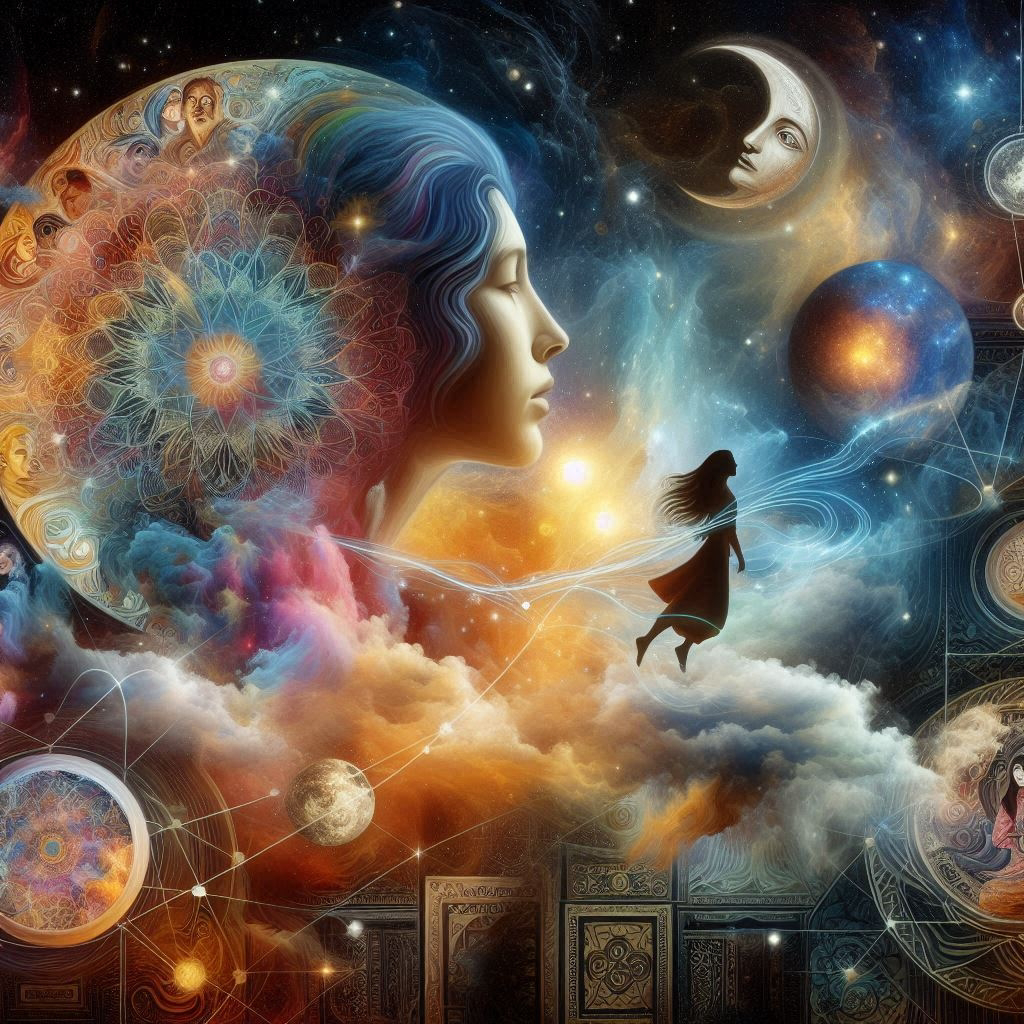Dreams have long been a fascinating and mysterious aspect of the human experience. Across time and cultures, they’ve been considered more than mere reflections of our subconscious; many believe dreams serve as a bridge to the spirit realm. For countless societies, dreams offer a sacred space for communication with ancestors, gods, and spirits. In this article, we explore the cultural and spiritual significance of dreams as a portal to the afterlife or the divine.
1. Indigenous Cultures: Sacred Dreaming
Indigenous cultures around the world often view dreams as a gateway to the spirit world. In many traditions, dreams are not merely personal but deeply communal, connecting individuals to their ancestors and the natural world. For example, the Australian Aboriginals view dreaming as a realm where the past, present, and future merge, often called the “Dreamtime.” This time is seen as a mythic dimension in which ancestral spirits continue to influence the world.
Similarly, Native American tribes, such as the Lakota and Hopi, believe that dreams provide insights and guidance from the spirit world. Dreaming is often seen as a way to connect with spirit guides or receive visions that can guide a person’s life or heal physical and emotional wounds.
2. Shamanic Traditions: Spirit Communication
Shamanic cultures have long used dreams to access spiritual realms. In these traditions, shamans—spiritual leaders who communicate with spirits—enter altered states of consciousness, often through dreams or rituals, to interact with the spirit world. Shamanism, practiced by many indigenous cultures, holds that dreams allow the soul to wander between the physical world and the realm of spirits. The dream world is considered a place where shamans can receive messages from ancestors, healers, or spirit guides.
For example, Siberian shamans use dream journeys to consult with spirits for divination, healing, or guidance. Similarly, Amazonian shamans take part in spirit journeys, often induced by plant medicines, and see dreams as a critical part of their spiritual practice.
3. Ancient Egyptian Beliefs: Divine Communication
In ancient Egypt, dreams were thought to be messages from the gods, offering guidance, warnings, and prophecies. The Egyptians believed in the importance of interpreting dreams to receive divine messages. In fact, the god Thoth, the Egyptian deity of wisdom and writing, was also associated with dreams and their interpretation.
Dreams were considered a way for the gods to speak directly to humans. Pharaohs and nobility would often seek dream interpreters to understand messages from the divine, believing these dreams had the power to shape their rule and actions. This practice was integral to both political and religious life in ancient Egyptian society.
4. Hinduism: Dreams and Divine Messages
In Hinduism, dreams are regarded as a reflection of both the unconscious mind and the divine realm. Dreams are believed to carry profound meanings, offering individuals messages from the gods or insights into past lives, karma, and spiritual growth. In the Upanishads, ancient Hindu texts, dreams are considered a gateway to the soul’s journey and enlightenment.
Yoga traditions within Hinduism also acknowledge the significance of dreams, particularly in practices like lucid dreaming and dream yoga, which involve becoming aware of the dream state and seeking spiritual insight. Some Hindu philosophers believe that dreams can even lead to experiences of the divine or enlightenment.
5. Buddhism: The Mind’s Journey
In Buddhism, dreams are often interpreted as a manifestation of the mind’s activities. While dreams are not explicitly seen as a means of communicating with spirits, Buddhist traditions, especially in Tibetan Buddhism, view the dream state as an opportunity for spiritual practice. Dream yoga is a practice in which practitioners become aware of their dreams, using this awareness to enhance spiritual growth, understand the nature of reality, and achieve enlightenment.
Some Buddhists believe that dreams reflect past karmic influences or present mental states, and that dreams can help uncover hidden truths or offer guidance on one’s spiritual path.
6. Modern Views: Exploring Dreams as Spirit Communication
In contemporary times, the belief in dreams as a bridge to the spirit realm still persists, especially within New Age and spiritualist movements. Many individuals turn to dreams to seek contact with deceased loved ones or to receive guidance from spiritual beings. Dream journaling is a common practice, used by those seeking to decode the messages sent by spirits or the subconscious.
Additionally, near-death experience (NDE) research has further fueled interest in dreams as a possible connection to the afterlife. Individuals who have experienced NDEs often describe vivid, dream-like experiences in which they communicate with deceased relatives or encounter otherworldly beings.
Conclusion: Dreams as a Portal to the Unknown
Across time and cultures, the concept of dreams as a portal to the spirit world remains a powerful and universal belief. Whether seen as a direct communication with the divine, a message from ancestors, or a tool for spiritual growth, dreams hold a sacred place in many cultures as a means of connecting with the unseen world. These beliefs continue to influence modern spiritual practices, where people still turn to their dreams for guidance, healing, and connection with the other side.
Understanding the significance of dreams in these belief systems reminds us that the human experience of life and death is not bound by time or the physical realm, but is part of a much larger, interconnected spiritual journey.




